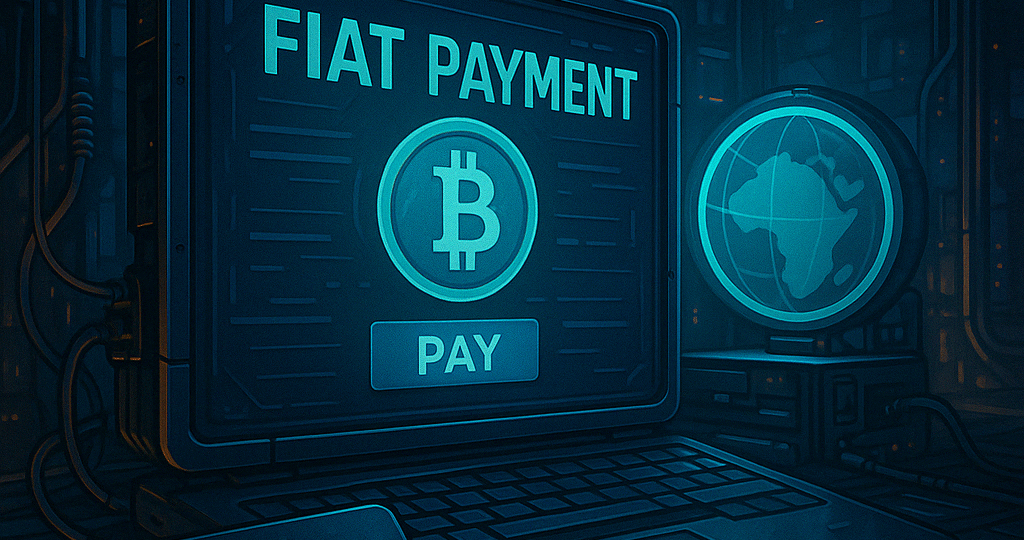Fiat Payment Infrastructure in 2025: Seamless, Secure, and Ready for Global Scale
April 20, 2025 | by 16squaresmaster@gmail.com

Introduction
While cryptocurrency and blockchain-based systems continue to evolve, fiat currencies—USD, EUR, GBP, JPY, and others—still dominate global transactions. Businesses today need advanced, secure, and instant fiat payment infrastructure to support online commerce, subscriptions, and international trade.
From digital wallets for fiat to instant payment processing and cross-border fiat payments, this guide outlines the essential tools and technologies driving scalable, secure fiat payment systems.
💳 1. Digital Wallet for Fiat: Modern Convenience for Traditional Currencies
A digital wallet for fiat allows users to store, manage, and spend fiat currencies directly from their smartphones or desktops.
Features:
-
Link to bank accounts or cards
-
Store funds in multiple currencies
-
Support for contactless or QR code payments
-
Instant transfers and real-time balances
Popular examples: Apple Pay, Google Pay, PayPal, Venmo, and Wise
🌍 2. Cross-Border Fiat Payments: Move Money Without Borders
Cross-border fiat payments enable users and businesses to send and receive government-issued currency across countries quickly and cost-effectively.
Key Capabilities:
-
FX rate transparency
-
Local bank deposit/withdrawal
-
Compliance with global KYC/AML regulations
-
Multi-currency invoicing and settlement
Used by: Wise, Payoneer, Stripe Treasury, Airwallex
⚡ 3. Instant Fiat Payment Processing: No Delays, No Downtime
Instant fiat payment processing enables real-time transaction confirmation, which is critical for e-commerce, gaming, SaaS, and ticketing.
Benefits:
-
Boosts customer satisfaction
-
Reduces drop-offs at checkout
-
Enables digital good delivery immediately
-
Powers subscriptions and micropayments
Platforms offering this: Stripe, Checkout.com, Square
🧾 4. Payment Solutions for Fiat: Built for Modern Businesses
Payment solutions for fiat are full-featured systems for accepting, routing, and settling traditional currencies online.
What They Include:
-
Hosted checkout pages or in-app SDKs
-
Multi-method payment acceptance (cards, bank transfers, wallets)
-
Tax and receipt management
-
Fraud prevention and chargeback handling
Ideal for startups, SaaS, marketplaces, e-learning, and digital goods platforms.
🌐 5. Global Fiat Transactions: Operate in Every Market
To operate worldwide, businesses need infrastructure that supports global fiat transactions seamlessly across countries and regulatory zones.
Requirements:
-
Local acquiring bank integration
-
Region-specific payment method support (e.g., iDEAL, Sofort, UPI)
-
Real-time reporting by currency
-
Tax/VAT compliance by country
This ensures a frictionless experience for international customers and reliable settlements for businesses.
🔌 6. Fiat Payment Gateway Integration: Connect Payments to Platforms
Fiat payment gateway integration refers to embedding fiat transaction functionality into your app, website, or platform via APIs, plugins, or hosted forms.
Integration Options:
-
API-based (custom and scalable)
-
Low-code plugins (WooCommerce, Shopify, Wix)
-
Webhooks for transaction status updates
-
Support for multi-language and multi-currency checkout
Gateways like Stripe, Mollie, PayPal, and Braintree offer robust fiat support out of the box.
📲 7. Contactless Fiat Payments: Touch-Free, Tap-and-Go Simplicity
Contactless fiat payments use NFC-enabled devices to initiate transactions, reducing the need for physical interaction.
Devices/Methods:
-
Smartphones with Apple Pay / Google Pay
-
Smartwatches or contactless cards
-
QR code payment apps
Use cases include: in-store retail, mobile food delivery, ticketing, and kiosks.
🛡 8. Secure Payment Processing: The Core of Customer Trust
Secure payment processing is critical in fiat transactions, especially with card-not-present (CNP) purchases.
Security Standards:
-
PCI DSS Level 1 certification
-
Tokenization of payment data
-
3D Secure authentication
-
AI-based fraud detection
Most modern providers also include velocity checks, device fingerprinting, and behavioral analytics for additional protection.
💸 9. Direct Fiat Payments: Bypass the Middlemen
Direct fiat payments refer to sending money from one bank account to another without a card network or PSP as an intermediary.
Examples:
-
ACH transfers (US)
-
SEPA transfers (EU)
-
Faster Payments (UK)
-
Interac e-Transfers (Canada)
These are ideal for high-volume, low-cost B2B payments, payroll systems, and direct billing scenarios.
🔁 10. Fiat Currency Transaction Systems: Automating and Managing Complexity
Fiat currency transaction systems enable businesses to track, analyze, and automate complex fiat flows—including subscriptions, refunds, and B2B invoices.
Core Features:
-
Multi-entity, multi-currency support
-
Automated invoicing and tax handling
-
Custom billing cycles and rules
-
Revenue recognition and financial reporting
Top systems: Paddle, Chargebee, Zoho Subscriptions, QuickBooks + Stripe
Conclusion
Fiat payments aren’t going anywhere—in fact, they’re becoming more intelligent, mobile, and integrated than ever. Whether you’re building an app, launching a global marketplace, or managing enterprise billing flows, the right fiat payment system is key to your operational efficiency and customer satisfaction.
A Modern Fiat Payment Stack Should Include:
✅ A robust digital wallet for fiat
✅ Support for instant and cross-border processing
✅ Secure, compliant gateway integrations
✅ Flexible options for mobile, contactless, and direct bank payments
✅ Real-time tracking via fiat currency transaction systems
With the right infrastructure in place, you’ll be prepared to operate globally, transact securely, and scale with confidence.
RELATED POSTS
View all


